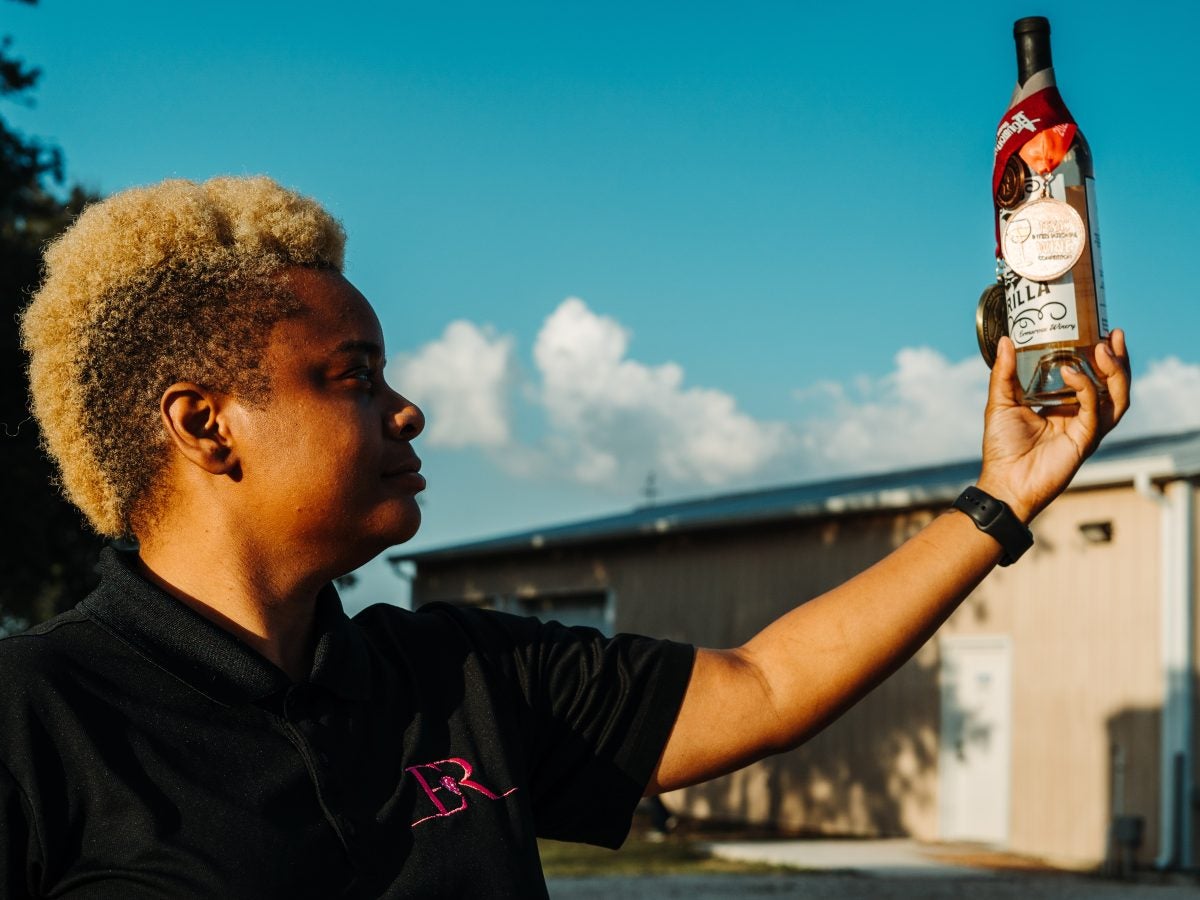
It’s Black History Month and National Drink Wine Day, so what better time to shine light on a Black-owned winery?
According to a 2021 Gallup survey, 31 percent of U.S. adults drink wine, which is unsurprising because there’s such an eclectic range of options to choose from. But wine can have some great benefits — even when you’re not consuming it, but rather, making it. Jennifer Prothow, a veteran, as well as CEO of ErmaRose Winery based in Katy, Texas, can attest to that.
She started her business in 2018 with her late father and now runs it alongside her mom, Andrea Prothow. Jennifer says some of the motivations for delving into the wine industry were navigating PTSD and building generational wealth for her family. She chats with ESSENCE about her journey and the ways in which winemaking has not only been profitable, but brought her peace.
ESSENCE: Can you tell me the history of your wine business?
Jennifer Prothow: The winery started from making wine at home. I took it up as a hobby because I’m a disabled veteran. I have PTSD and I used it for therapy and healing. When I first started, it felt like I was bringing myself back to life at home and then as I got better and better with it, I was sharing my wine with my neighbors, my mom’s friends, my family, and everybody just really loved it.
They were pushing me to make it into a business, especially my father. He was very integral in the beginning. He would go around and talk to other business owners who had bars and restaurants and people we knew in the wine industry and ask for their advice or what they thought of my wine and things like that.
We wanted to make sure that we had all the tools to run a business. So we went to our local community college that offered free classes for veterans. And then we got [together] with the National Society of Black Engineers, a small business association, got a mentor, put our business plan together and we went forward. I lost him to a heart attack the day before our first wine tasting.
What is your area of specialization? What makes your wine stand out?
We’re a fruit-based winery. The thing about our fruit wines is that we make them from real fruits–no grapes, so our process is a little different. It doesn’t taste sugary sweet. They’re more natural. Plus, our wines are higher in alcohol. Most fruit [wines] have five to 8 percent alcohol, ours [have] like 11 percent.
What are your recommendations of wines to try? Perhaps for a date night or girls night?
There are some awesome red wines that I feel like can replace a good cabernet for a date night. So, if you’re going on a date and you’re eating a steak, I would try a tempranillo or malbec. Those two are great.
And then, for girls night, I like to recommend the royal dragonfly–I call it my porch pounder. It’s not too sweet, not too dry, and it’s very light. It’s a dessert wine that you just sit around the table with your girls or on a porch or patio in the summertime and drink. I also really like prosecco or moscatos for date nights or girls night.

What are three basic things that new wine drinkers should know about wine?
First things first, throw out the book. We’re doing things differently now in the wine industry, the old book where you have to drink a [cabernet] with a steak and all that kind of stuff. Just drink what you like. You don’t have to drink a cab to be a wine drinker.
The second thing, drink as much wine as you can to educate your palate. Your palate is like a child that needs to be educated. Some people are gonna start off with liking sweet wines and then maybe their palate will mature to dryer wines or more traditional ones. You don’t need some book or somebody to tell you how to do it.
Third thing–these days and times, small businesses are really struggling. I would suggest that people go out to wineries and hear their stories. Everyone has a story. Like our story is very connected to us. Other people have great stories about their wineries, so just get out there and explore. There are tiny wineries all around. Mom and pop-owned wineries have some of the best, it’s just that they don’t produce in such large quantities so they [don’t] sit on the shelf.
What are your thoughts on black wine culture?
Our culture just makes us so different. You know what I mean? I have a cousin who’s from Somalia and she’s a judge in a lot of wine competitions. She told me that she loves watching my generation of Black winemakers do different things, break the mold, [and] throw out the book. I mean, that’s who we are as a culture. We don’t follow the rules, we make our rules.





